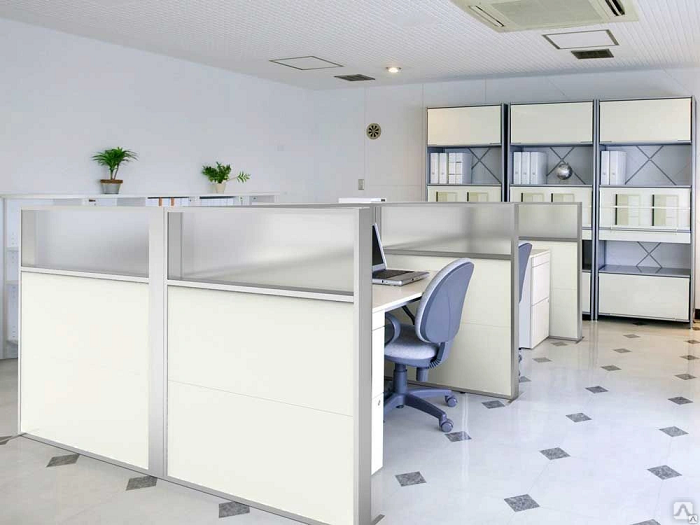
12 Oct Do office partitions make employees more productive??
Office partitions appear to increase employee productivity in a number of tasks such as “head down to work”. That is, for those who are engaged in word processing or are immersed in any other process, partitions are good. However, whenever employees need to communicate with each other and for people who need communication in the course of work, they can be a problem. To solve such issues, a chain of tables is used. For those employees who need to communicate with each other in the process of work, low partitions are installed, the rest are fenced with high partitions. In some cases, they even make booths up to the ceiling and install doors to them.
When the concept of separate cubicles, created by installing partitions, was first introduced in 1968, it was all part of the overall vision of the office space, which was called “Operating Office”. Historically, many companies have used open space where rows of tables have been set up, often organized impersonally and without any sound logic. The inventor of the office cubicle, a man named Robert Propst, envisioned increasing the productivity of employees by providing each of them with an individual workspace. Workers could equip their place, make it more efficient.
But times have changed. Although office partitions still perform a useful function in dividing office space, attitudes towards offices in general have changed significantly. Today, when staff can work on a laptop and remotely, only a handful of professions require conventional office layouts. And yet, the presence of laptops and the absence of wires from telephones have allowed offices to turn into home zones, where staff work not at a table, but in an armchair. But all this, again, depends solely on the convenience of employees and the degree of comfort of their work in certain conditions. Thus, productivity in different cases will be increased by different factors, often exactly opposite to each other.




No Comments